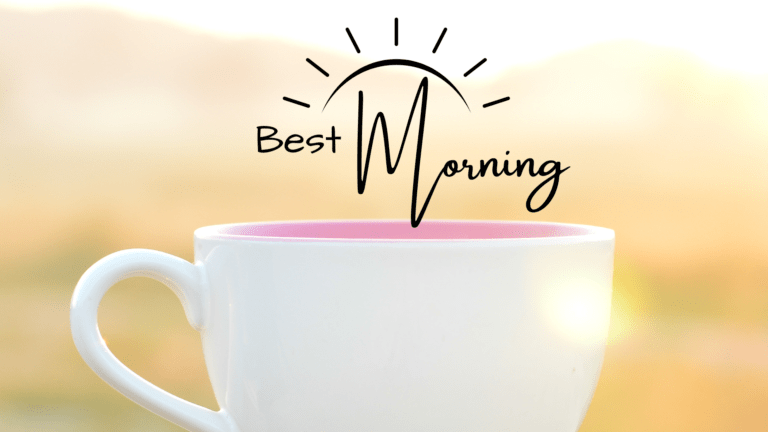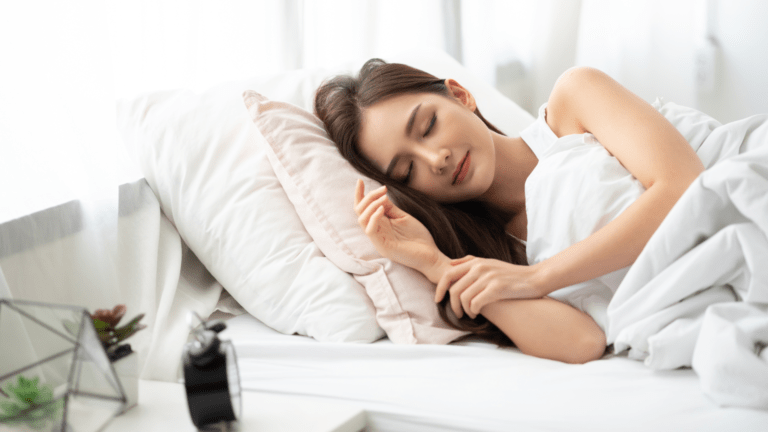So, you’re struggling with sleep and wondering about melatonin, right? You’re not alone! There’s a common belief that more melatonin means better sleep, but that’s not entirely true. Finding the right balance is key. In this blog, we’ll explore how much melatonin you should take and delve into some fantastic non-melatonin sleep aids. Let’s get started on this journey to better sleep!
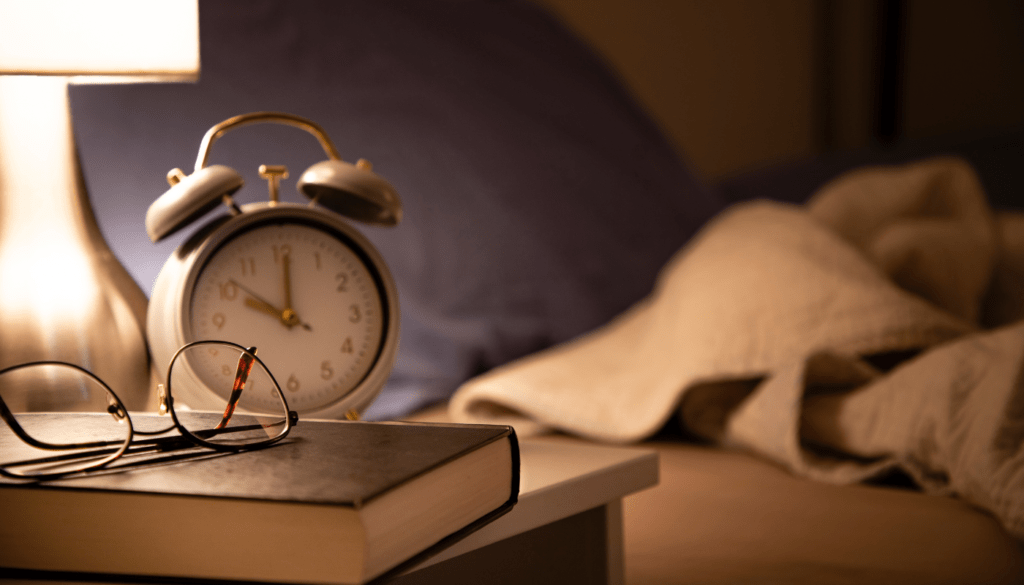
What is Melatonin?
First things first, what exactly is melatonin? It’s a hormone that your body naturally produces. Think of it as your internal sleep regulator. As the sun sets and it gets darker, your brain starts pumping out melatonin, signaling to your body that it’s time to wind down and rest.
Melatonin is often referred to as the “sleep hormone” because of its crucial role in managing your sleep-wake cycle. This cycle, also known as your circadian rhythm, is like your body’s internal clock. It helps you feel awake during the day and sleepy at night. Pretty fascinating, right?
How Melatonin Works
Now, let’s talk about how melatonin functions. When the evening rolls around, your brain’s pineal gland releases melatonin into your bloodstream. This rise in melatonin levels makes you feel drowsy, helping you drift off to sleep.
But here’s the kicker: melatonin isn’t a magic sleep pill. It helps regulate your sleep, but it doesn’t knock you out like a sedative. Instead, it works with your body’s natural rhythms. That’s why understanding the correct dosage is so crucial – too much or too little can throw things off balance.
So, in a nutshell, melatonin is your body’s natural sleep signal, working behind the scenes to help you get a good night’s rest. Understanding how it works is the first step towards using it effectively. Alongside melatonin, incorporating meditation and vitamins into your routine can significantly enhance your sleep quality.
Meditation helps calm your mind and reduce stress, making it easier to fall into a deep, restorative sleep. Additionally, certain vitamins, such as magnesium and vitamin D, play a crucial role in promoting relaxation and regulating sleep patterns, ultimately helping you achieve core sleep.
How Much Melatonin Should I Take?
Many people think taking a high dose of melatonin will guarantee better sleep, but that’s a myth. The right amount varies depending on several factors, and it’s crucial to find the best melatonin dosage for your individual needs. Taking too much can lead to grogginess the next day, while the right amount can help you achieve a restful night’s sleep without any side effects.
Best Melatonin for Adults
When choosing the best melatonin for adults, it’s important to consider the dosage, formulation, and any additional ingredients that might support sleep. Look for melatonin supplements that offer a range of doses, typically between 1 to 3 milligrams, to allow for flexibility in finding the right amount. Time-release formulations can help sustain melatonin levels throughout the night, providing longer-lasting sleep support.
Additionally, the best melatonin supplements include calming herbs like chamomile or valerian root, which can enhance the overall effectiveness. When searching for the best melatonin for sleep, it’s important to choose a reputable brand and consult with a healthcare professional to ensure the supplement is right for you. This approach helps ensure you get a high-quality product that meets your specific sleep needs.
General Guidelines
A typical melatonin dosage ranges from 0.5 to 5 milligrams. It’s usually best to start with the lowest dose possible and see how your body responds. Finding the best melatonin dose for your needs can involve some trial and error, but starting small helps minimize potential side effects.
If you’re wondering how many melatonin gummies should I take or how many mg of melatonin should I take, it’s essential to check how many milligrams of melatonin each gummy contains, as they often come in different strengths. Kids, on the other hand, should stick to lower doses, around 0.5 to 1 milligram. Always talk to a pediatrician before giving melatonin to children.
Factors Influencing Dosage
Several factors influence how much melatonin to take. Your age, weight, and any health conditions play a significant role. For example, older adults might need a slightly higher dose since melatonin production decreases with age. Similarly, those with sleep disorders like insomnia may require different dosages compared to those who just need help adjusting their sleep schedule. If you’re wondering how much melatonin can I take at night or how much melatonin should an adult take, it’s important to start with a low dose and adjust as needed.
For most adults, a dose of 1 to 3 milligrams is typically effective, but how much melatonin should I take can vary from person to person. How much melatonin should you take at night will depend on your individual needs and response to the supplement. When considering how much melatonin to take for sleep, always consult with a healthcare professional to determine the best dosage for your specific situation.
Potential Side Effects
Even though melatonin is natural, it can have side effects if not used properly. Common side effects include headaches, dizziness, and daytime drowsiness. Some people might also experience vivid dreams or an upset stomach. If you experience any severe adverse effects, it’s best to consult a doctor.
For those seeking the best sleep aid for adults with anxiety, it’s important to note that higher doses of melatonin aren’t always better and can lead to symptoms of melatonin overdose such as nausea and irritability. Remember to use melatonin carefully and consult with a healthcare professional to find the most appropriate solution for your sleep needs.
Ideal Timing to Take Melatonin
Timing is everything when it comes to melatonin. For most people, the best time to take melatonin is about 30 minutes to an hour before bedtime. This gives your body enough time to absorb the supplement and start feeling its effects. If you’re using melatonin to adjust to a new time zone or shift work, you might need to take it at a different time. For example, if you’re traveling to a new time zone, you might take melatonin a few hours before your desired bedtime in the new location.
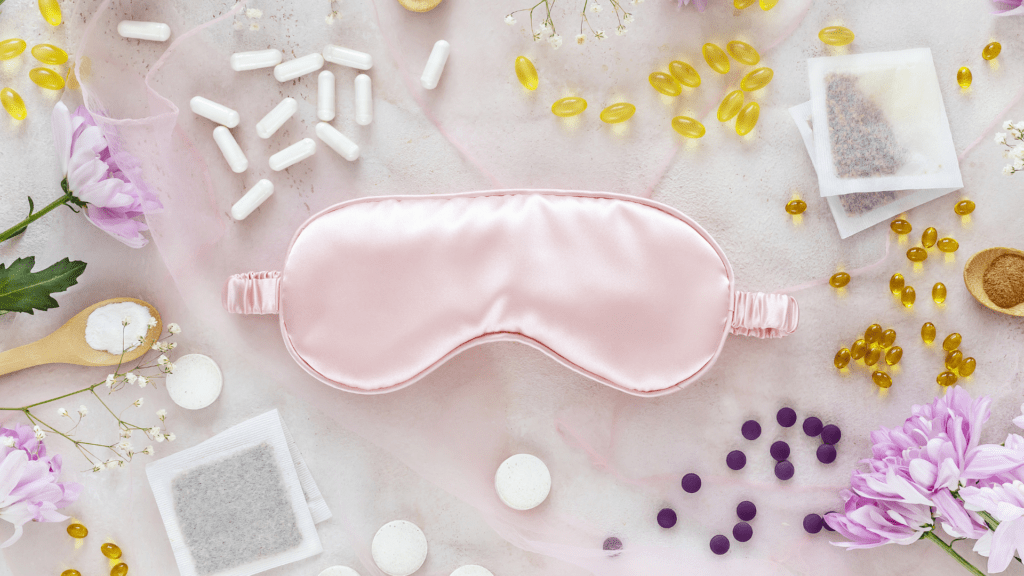
Duration and Frequency
How often and how long should you take melatonin? For occasional sleepless nights, taking melatonin for a few days might be enough. But if you have chronic sleep issues, you might need to use it for a longer period. It’s important not to rely on melatonin every night without consulting a healthcare provider. Long-term use isn’t well-studied, and it’s essential to find and address the root cause of your sleep problems.
Non-Melatonin Sleep Aids
A common belief is that melatonin is the only option for sleep issues, but that’s not true. There are plenty of non-melatonin sleep aids that can help you get a good night’s rest.
Natural Alternatives
Natural sleep aids can be very effective and often come with fewer side effects. Here are some popular options:
Valerian Root
The exact mechanism of valerian root’s sleep-inducing properties isn’t fully understood, but it’s believed to interact with gamma-aminobutyric acid (GABA) receptors in the brain. GABA is a neurotransmitter that helps regulate nerve impulses in the central nervous system, promoting feelings of calmness and relaxation. Valerian root is one of the best-rated sleep aids for adults with anxiety, offering a natural remedy for deep sleep.
Chamomile
Often consumed as a tea, chamomile is famous for its relaxing properties. This herbal remedy contains compounds like apigenin, which binds to receptors in the brain that may promote sleepiness and reduce insomnia symptoms. Its gentle, soothing aroma and mild flavor make chamomile tea a popular choice for winding down before bedtime, helping to calm the mind and prepare the body for restorative sleep. Chamomile is often considered the best natural sleep aid without melatonin.
Lavender: A Natural Aid for Relaxation and Sleep
Whether in essential oil form or tea, lavender is another natural option that promotes relaxation and sleep. Lavender’s soothing scent has been shown to lower heart rate and blood pressure, creating a calming effect that can ease anxiety and improve sleep quality. Incorporating lavender into your bedtime routine can help create a tranquil environment conducive to restful sleep. Lavender is among the best sleep aids for those seeking a nighttime sleep aid without the use of melatonin.
Magnesium: Essential for Relaxation and Sleep
Magnesium is a vital mineral that plays a key role in relaxation and sleep. It helps regulate neurotransmitters that are involved in calming the brain and nervous system, promoting deeper and more restorative sleep. Incorporating magnesium-rich foods or supplements into your diet can support overall sleep quality and help you wake up feeling refreshed. Magnesium supplements are highly regarded as one of the best sleep supplements for enhancing sleep support without melatonin.
These natural remedies are great if you’re looking for a gentle nudge towards better sleep without using melatonin. They are some of the best non-habit-forming sleep aids, providing effective sleep support without the risk of dependency.
Top Rated Sleep Supplements
For those seeking alternatives to melatonin for adults, various sleep aid products are available. Some of the best sleep supplements include natural ingredients like valerian root, chamomile, lavender, and magnesium. These best supplements for sleep are often reviewed highly in sleep aid reviews and are considered the best sleep aids for those dealing with anxiety.
Best Vitamins for Sleep and Anxiety
Vitamins can also play a significant role in promoting better sleep. The best vitamins for sleep and anxiety include Vitamin D, B vitamins, and magnesium. These vitamins support overall sleep health and help reduce anxiety, making them effective sleep food supplements.
Sleep Aid Reviews and Products
When looking for the best sleep aid, it’s important to consider sleep aid reviews to find the most effective and best-rated sleep aid. Some popular choices include natural sleep aids like valerian root, chamomile, and magnesium, which are known for their effectiveness and minimal side effects.
What to Use Instead of Melatonin
If you’re wondering what to use instead of melatonin, consider natural remedies for deep sleep and sleep support supplements. Options like valerian root, chamomile, lavender, and magnesium are all excellent choices for a non-melatonin sleep aid that can help you achieve restful and restorative sleep.
These natural remedies and supplements are some of the best sleep aids available, offering effective relief and support for a good night’s rest without relying on melatonin.

Over-the-Counter Options
If natural remedies aren’t cutting it, there are various over-the-counter (OTC) sleep aids available:
Antihistamines
Medications like diphenhydramine (Benadryl) and doxylamine (Unisom) can make you drowsy.
Herbal Supplements
Products like melatonin-free sleep blends often include herbs like passionflower and lemon balm.
OTC sleep aids can be helpful for short-term use, but they shouldn’t be relied on for long periods without consulting a healthcare provider.
Prescription Sleep Medications
For more severe sleep issues, prescription medications might be necessary. Some common non-melatonin prescription sleep aids include:
Zolpidem (Ambien)
A popular choice for short-term insomnia treatment.
Eszopiclone (Lunesta)
Another effective option for long-term sleep problems.
Trazodone
Originally an antidepressant, it’s often prescribed off-label for insomnia.
These medications are usually more potent and should only be used under a doctor’s supervision to avoid dependency and other side effects.
Combining Melatonin with Non-Melatonin Sleep Aids
Many people think combining different sleep aids will just knock them out faster, but that’s a risky approach. It’s crucial to combine them safely.
Safe Combinations
When combining melatonin with other sleep aids, it’s important to be cautious. Here are some tips:
Consult Your Doctor
Always check with a healthcare provider before mixing sleep aids.
Start with Low Doses
Begin with the lowest dose possible to gauge how your body reacts.
Avoid Alcohol
Combining sleep aids with alcohol can increase drowsiness and other side effects.
Using melatonin alongside other sleep solutions can be beneficial if done correctly, ensuring you get a restful night’s sleep without overloading your system.
Tips for Better Sleep
In addition to sleep aids, here are some practical tips to improve your sleep quality. Improving sleep quality begins with adopting healthy sleep habits and creating a conducive sleep environment. Here are some effective lifestyle tips to consider:
Establish a Consistent Sleep Schedule
Going to bed and waking up at the same time each day helps regulate your body’s internal clock, promoting better sleep quality over time. Consistency reinforces your natural sleep-wake cycle, making it easier to fall asleep and wake up refreshed. Aim for 7-9 hours of sleep each night to support overall health and well-being.
Create a Relaxing Bedtime Routine
Engage in calming activities before bed, such as reading, taking a warm bath, or practicing relaxation techniques like deep breathing or meditation. This signals to your body that it’s time to wind down. Establishing a consistent routine can help ease the transition from wakefulness to sleep, improving the quality of your rest.
Optimize Your Sleep Environment
Ensure your bedroom is cool, dark, and quiet. Consider using blackout curtains, earplugs, or a white noise machine to minimize disturbances that can disrupt sleep. Additionally, invest in a comfortable mattress and pillows to support a restful night’s sleep and enhance overall sleep quality.
Limit Screen Time Before Bed
The blue light emitted by screens can interfere with melatonin production and disrupt your sleep-wake cycle. Aim to avoid screens at least an hour before bedtime. Instead, engage in relaxing activities that don’t involve screens, such as reading a book or practicing gentle stretching to prepare your body for sleep.
Stay Active During the Day
Regular physical activity can promote deeper, more restorative sleep. However, avoid vigorous exercise close to bedtime, as it may have the opposite effect. Aim for at least 30 minutes of moderate exercise most days of the week, but try to complete your workout at least a few hours before bedtime to prevent disruptions to your sleep.
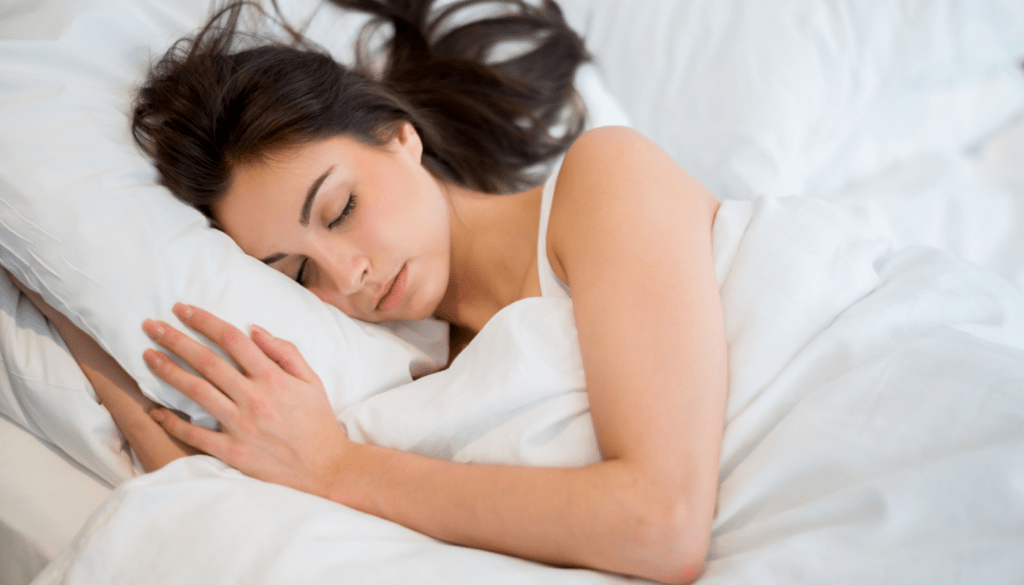
Real-Life Experiences and Testimonials
Contrary to popular belief, finding the right sleep aid isn’t just about popping a pill and hoping for the best. Real people have shared their experiences with melatonin and other sleep aids, shedding light on what works and what doesn’t.
Personal Stories
Many individuals have found success with melatonin, using it to regulate their sleep patterns and overcome occasional insomnia. For example, Sarah, a busy professional, struggled with jet lag and found that taking melatonin helped her adjust to different time zones more easily.
Others have shared their journeys with alternative sleep aids. David, a long-time sufferer of insomnia, found relief with valerian root supplements, which helped him relax and drift off to sleep naturally.
Expert Opinions
Experts emphasize the importance of personalized sleep solutions. Dr. Emily, a sleep specialist, advises that while melatonin can be effective for some, it’s essential to address underlying sleep issues. She recommends a holistic approach that includes lifestyle changes and stress management techniques.
Dr. Michael, a psychiatrist, highlights the need for caution with prescription sleep medications. He suggests exploring non-pharmaceutical alternatives first and using medications only when necessary and under medical supervision.
Conclusion
As we wrap up, let’s recap what we’ve covered about melatonin and alternative sleep aids.
Melatonin is a natural hormone that plays a key role in regulating our sleep-wake cycles. The appropriate dosage of melatonin can vary based on individual factors such as age and health conditions, making it important to tailor its use to each person’s needs. Timing is crucial for melatonin to be effective; taking it at the right moment can significantly enhance its benefits for sleep.
Besides melatonin, there are alternative sleep aids available, including herbal supplements and prescription medications, which provide different solutions for those struggling with sleep issues. It’s important to use these aids with caution and under medical supervision, especially when combining different types. Additionally, establishing a consistent bedtime routine and creating a conducive sleep environment can further improve sleep quality and overall well-being.
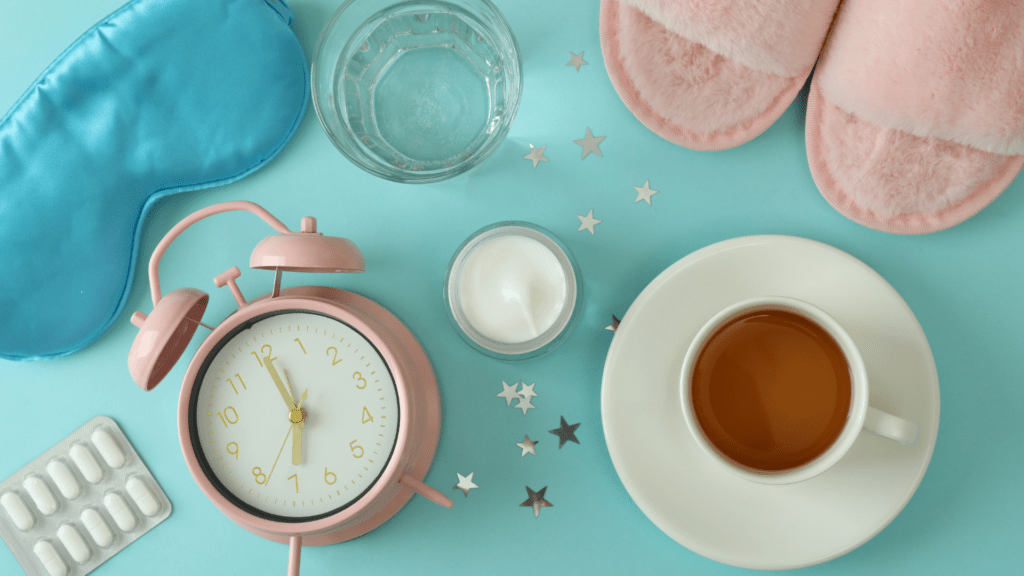
Improving your sleep quality is within reach. Whether you opt for melatonin or explore non-hormonal options, finding what works best for you is key. Remember, sleep is essential for overall health and well-being, so don’t hesitate to seek professional advice if you’re struggling.
Lastly, I encourage you to share your experiences and thoughts on sleep aids in the comments below. Your insights could help others on their journey to better sleep.

